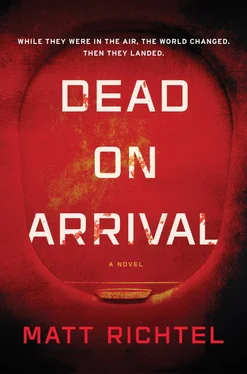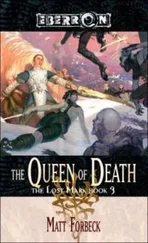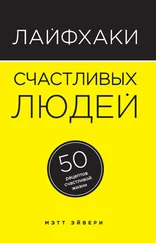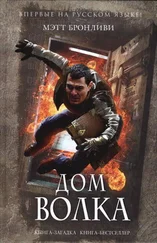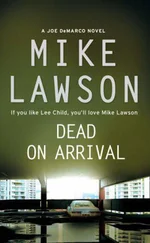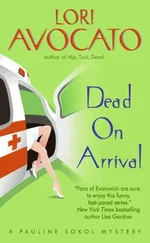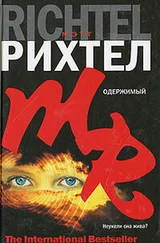Dean Thomas, I did your bidding in Africa, trying to save lives, and you repay me by stripping me of my ability to educate the doctors of the next generation. I hope you will reconsider your hasty threats or I will not hesitate to share my experiences as someone who has been thrown under the bus to serve outside interests.
Sincerely,
Jackie hit send and then deleted the initial e-mail from the dean. Dr. Martin, perhaps, would never see this correspondence. She doubted he was a dogged user of e-mail anyway. She felt euphoric. She’d gotten off her perch of indecision and given a boost to the man who had once saved her life.
Of course, she couldn’t know that Dr. Martin was the one who asked in the first place for some administrative leave. She couldn’t know the emotionally dark place he’d inhabited, or why. She pictured a defeated version of this great man, her distant crush and savior who, if she was honest with herself, she craved to be seen as his equal, someone who saw her, understood her, wouldn’t put her into a terrible position. Now left to sleep on his couch at the office? And even that being taken from him?
She stared into the dark for a long time, pondering, exploring her feelings, taking her time with an idea, rolling it around in her brain—until she felt a surge of certainty.
She slipped out the back door of the apartment building and took an Uber in pouring rain to UCSF on Parnassus. This was the old medical-school campus in San Francisco’s inner sunset neighborhood, and right near Haight and Ashbury. Much of the medical enterprise had moved down to Mission Bay, where the lecture halls were, but the main adult emergency room and hospital remained on Parnassus. So did some of the faculty and adjunct offices, infectious disease among them, and for good reason: often, when an infectious disease specialist was needed, he or she was needed in the hospital to consult with a virulent and unusual case.
Jackie took the elevator to the fifth floor in the elevator adjoining the main hospital. The setting was a far cry from the majestic new campus. This was drab and boxy, merely functional. She was looking for number 503 and figured that she’d found it when she saw from a distance down the hallway the doorway in the corner, the proverbial corner office that Lyle deserved. Colorful papers and patient reminders were carefully taped to the doorway. But that one was marked 501 and had a sign for DR. JEN SANCHEZ. The department’s darling, Jackie knew. She was the one with the sweet digs.
Jackie turned to the left, and ten feet down she found 502, right beside the echoing stairwell, and clearly a little box. Jackie felt a pang for Dr. Martin at this inglorious place; he deserved so much better.
It was so much worse when she pushed open the door.
The smell. She recoiled. She wondered if it was disease. Was this the odor of bacteria consuming a human body? No, she quickly realized, it was the stench of ancient pizza. From the looks of the remains in the open box on the table in the small entry room, a meat lover’s special. She repressed a gag.
“Dr. Martin?”
There was just enough light from the hallway behind her, and a sliver of moon from a window across the tiny office to illuminate the mess of food remains, scattered papers, and was that a camping stove? And the light also showed the way to an opening to a second room.
She shuffled by the desk and thought, Let him be okay .
For all Jackie’s awareness, her great skills at piecing together the world, she would not have sensed how strange it was for her to be here, how impulsive. She was grasping at straws. The Google thing, Denny, the man in the car, they’d tapped into that core part of her that was emotionally flummoxed, off balance, so much less composed than she showed the world. Now she was on the verge of coming undone altogether, torn apart with uncertainty. But that’s not what she told herself. She thought, as she walked into the open doorway of the second room, Now I know what to do. I can help this man who needs my help.
There he was, in a heap. On the couch, an arm draped to the side with his hand near a half-empty bottle of clear alcohol and a piece of paper.
“Dr. Martin?”
“I’m retired. Call me Lyle,” he muttered. He didn’t bother to look up.
“Lyle?”
“Retired,” he muttered again. “Honorifics no longer applicable.”
She turned on the light. The office reminded her of the austere habitat of a shrink she once visited: a chair, coffee table, and the couch where Lyle was flopped facedown. On the table, several empty bottles and what appeared to be a half-eaten burrito.
“Uhhhh!” Lyle made an anguished sound like a vampire consumed by sunlight.
She turned it off. She didn’t want to see him like this; he didn’t deserve to be seen like this. What remained were silhouettes.
“I’ll clean it myself,” he said. “Please. Go away.”
“I’m not the cleaning crew.”
“It’ll be a new career path for me.”
“Let me get you some water.”
She glanced around for a bottle or cup. She couldn’t make out much. Some of the books on the built-in shelves had been scattered to the floor, like someone had casually pulled them off. On the table, she could make out a plastic cup. She picked it up and sniffed the contents and shivered with disgust. Cheap swill.
“Are you hungry?”
No answer. She couldn’t imagine what had dragged him to this abyss. She also knew, in her gut, she knew, that she couldn’t ask him outright. That wasn’t how these things worked. Not with the proud and brilliant. She knew because she wouldn’t respond to direct questions, either. She’d been low. She understood Dr. Martin, and he probably would understand her.
“May I take a liberty?” she said, and she sat.
“Have a seat.” He laughed, some odd private joke because she was already sitting. He was half mad, at least half, she thought.
“You are a great man.”
Lyle turned his head, slightly, curiously, like a bird hearing a sound, such that he could make out her edges through the hair. She wondered if he imagined her as an apparition or dream.
“Are you good or evil?” he asked.
“What happened in Africa?” she asked.
“Africa?”
“Tanzania?”
“How do you know about that? Am I dreaming?”
He was obviously drunk and exhausted, but she wasn’t sure he could be quite that out of it to not know whether he was dreaming. His question almost sounded metaphorical, like Is this all a dream? She went with it. “Yes.”
“To dream, the impossible dream…” he sang, and then said, “Well, then let me tell a story.”
“You tell beautiful stories.”
“Once upon a time, there was a man who decided to be an infectious disease doctor and he had this idealistic vision that he could take on viruses and disease and find cures and then you know what would happen?”
“The world would be a better place.”
“He’d get laid.”
She laughed.
“Don Quixote tilting at viruses,” he continued, slurring. “Holding them off from attacking all the people he was protecting, including the princess. Year after year, he tilted, and the viruses kept coming and that was interesting and good work, tilting or not. And then the young doctor, who wasn’t so young anymore, heard something behind him. He turned to see all the people he arrogantly told himself he was defending from the viruses.”
Lyle looked down at the bottle standing on the carpet and tipped the vodka back and forth idly. Then he picked up the piece of paper and clutched it.
“They were killing each other,” he finally said. “Shooting, maiming, terrorizing, drinking and driving, stealing each other’s land, finding tax loopholes and racking up speeding tickets, building narco empires, filing lawsuits and countersuits, cloaking themselves as decent and moral and, all the while, doing more damage than any virus. Just one big difference.”
Читать дальше
